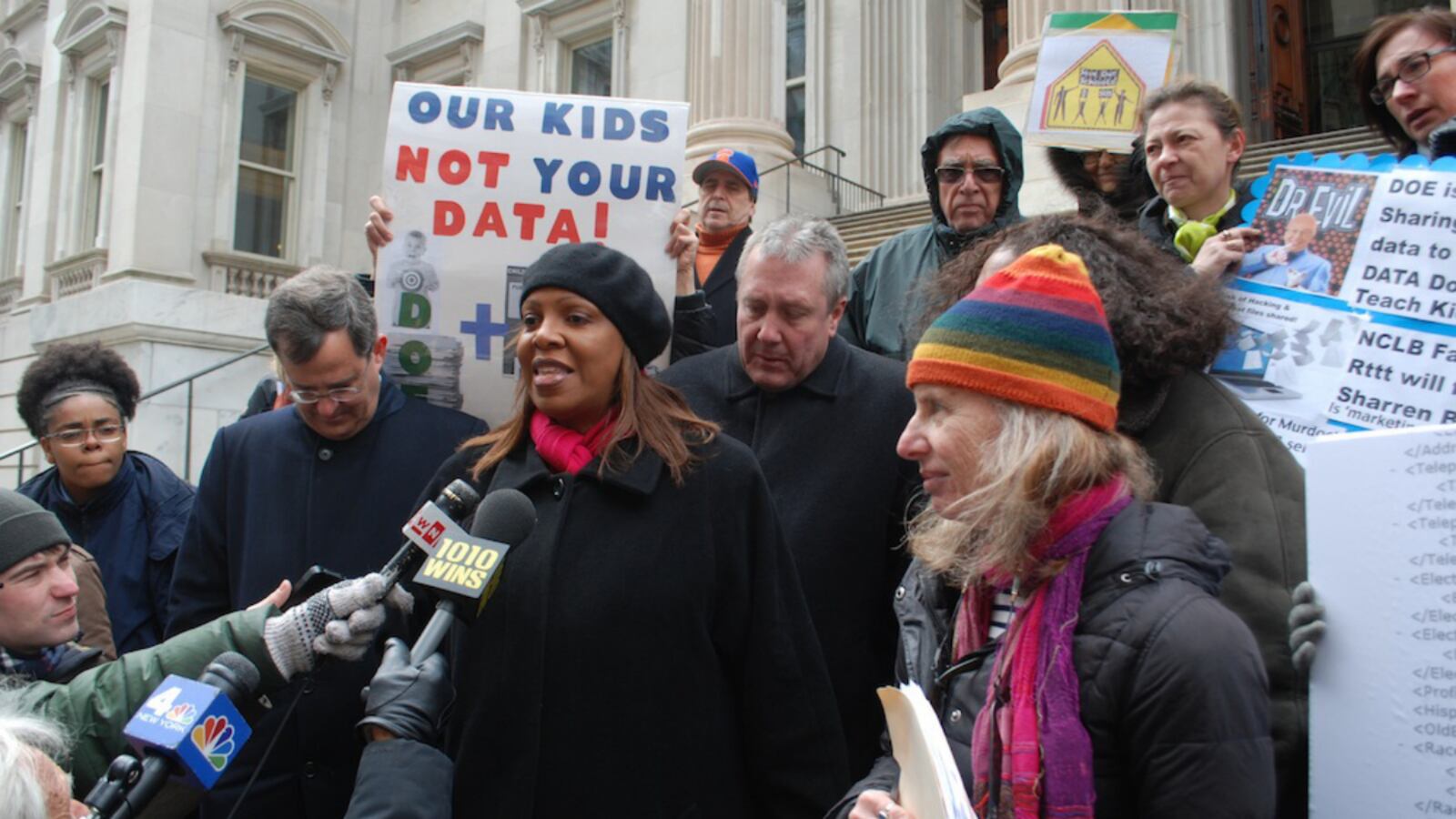The city is advising principals that members of the public and the press are not permitted at school leadership meetings while it appeals a recent court ruling that said those meetings must be open to the public.
State law requires every city school to have a leadership team composed of the principal, parent association president, teachers union representative, along with an equal number of parents and staff members. The teams craft an annual list of goals and strategies for their schools and weigh in on major decisions, like the hiring of new principals and the placement of other schools in their buildings.
Manhattan Supreme Court Justice Peter Moulton ruled in April that those teams’ meetings are subject to open meetings laws. In the ruling, the judge said that the parent-educator teams “touch on the core functions of a public school,” which he called a public matter, “not a private concern limited to the families who attend a given public school.”
Chancellor Carmen Fariña told principals in an email Tuesday night that the city is appealing that decision, which the email said went “against a long-standing NYCDOE policy.” The message adds, “Please note that, at this time, SLT meetings are not open to the general public (i.e., people who are not members of the school community) or the press.”
Education department spokeswoman Devora Kaye said in a statement Wednesday that the city’s appeal “protected school communities.” Subjecting the leadership teams to open meetings laws, she said, “would impede discussions on private school-based matters such as personnel issues, individual student progress and school safety plans.”
The judge’s decision stemmed from a lawsuit filed last year by a retired Manhattan teacher who had been blocked from attending a leadership team meeting. Public Advocate Letitia James and the nonprofit Class Size Matters both joined that lawsuit against the city.
Their lawyers said Wednesday that they plan to take legal action to make sure the judge’s ruling is enforced while the city appeals it. They also rejected the department’s arguments for limiting access to the school leadership meetings, saying they are not the proper venue for discussing private student matters or safety plans, which are technically the responsibility of mandated school safety committees. The teams could still hold private “executive sessions” if they need to discuss confidential student or personnel issues, they noted.
Class Size Matters executive director Leonie Haimson said she was “very distressed and disappointed” by the city’s decision to appeal the ruling and by the guidance to principals to close the meetings to the public.
“This email really does conflict with a lot of their supposed interest in collaborating with parents and the community and being more transparent,” she said.
Haimson disputed the idea that barring the public from school leadership meetings is a “long-standing policy” by pointing to a 2011 education department slideshow that says the meetings are open to the public. The department spokeswoman said that part of the presentation was “incorrect” and had been updated.
James’ office declined to comment on the city’s decision to appeal.
In a separate lawsuit in 2013, a Staten Island teacher sued the city after he was barred from the leadership team meeting at his school. In that case, the judge ruled that the teams are not subject to open meetings rules.

